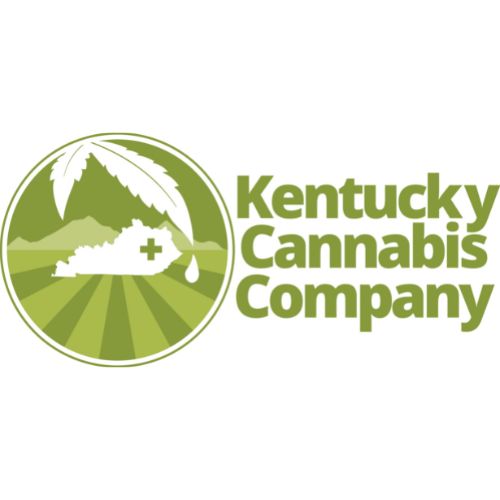As the therapeutic potential of hemp-derived CBD continues garnering public and scientific attention nationwide, evolving state laws seek to loosen restrictions around legal use that depart from federal statutes still classifying cannabis as an illegal Schedule 1 substance. This conflict introduces confusion around where CBD stands within certain state jurisdictions. So is CBD oil actually legal in Florida today?
While the legal status of CBD remains convoluted across America, Florida navigated legislative technicalities early to sanction various types of CBD products in-state to facilitate access. Recent efforts also establish reasonable CBD allowances in Florida aligned with federal 2018 Farm Bill provisions removing restrictions around hemp. However exact allowable sources and product types continue facing ongoing clarification and debate.
Read on for an overview of Florida’s current stance on legal hemp CBD use, factors still complicating access, and what the future may hold for simplifying and expanding CBD possession and availability through upcoming state policy revisions.
Florida’s Early Steps Toward Legalizing CBD Use
Long before the 2018 Federal Farm Bill drew national attention to CBD’s therapeutic promise and severed connections to cannabis prohibition related to recreational marijuana, Florida took proactive legislative steps recognizing CBD’s vast medical potential.
As early as 2014, Florida moved to legalize non-euphoric “low-THC” CBD oil access to registered patients suffering from severe seizures or muscle spasms through the Compassionate Medical Cannabis Act. This law specifically legalized CBD oils, sprays, tinctures, capsules and related products provided they contained under .8% THC – the primary intoxicating cannabinoid found in marijuana – and over 10% CBD by weight.
While limited in scope to serve a subset of medical conditions, this law importantly decriminalized all aspects of regulated CBD oil production and distribution through approved Florida dispensaries as well as patient possession for certain uses. It also catalyzed momentum toward widening consumer CBD access despite ongoing federal prohibition under the Controlled Substances Act categorizing both marijuana and hemp as Schedule 1 banned substances at the time.
Conflict With Federal Statutes Clouds Legality & State CBD Access
Beyond medical allowance, the strange conflict between CBD’s status under Florida state law versus nationally under the DEA introduces confusion around aspects like travel and shipping. Despite Florida sanctioning certain CBD forms, TSA officials and postal authorities adhered to federal regulations recognizing all cannabis products as illicit contraband.
So even as lawmakers worked to increase in-state accessibility, federal prohibition created barriers around interstate CBD commerce and possession in transit. This legal limbo also deterred many mainstream retailers from stocking CBD products without clear DEA or FDA oversight classifications for non-intoxicating hemp-derived CBD.
2018 Federal Hemp Legalization Catalyzes Push Toward Open CBD Access
Just as Florida began expanding licensed dispensaries and qualifying medical conditions for low-THC CBD treatment in 2016, monumental federal changes would further transform the legal CBD landscape nationwide.
The 2018 Farm Bill signed into law by President Trump officially removed hemp and any cannabinoid derivatives like CBD from Controlled Substance Act oversight. This groundbreaking legislation explicitly legalized industrial hemp cultivation, processing and sales as an agricultural commodity. By severing hemp connections to cannabis prohibition statutes, the bill enabled interstate CBD commerce absent fear of DEA reprisal.
By federally decriminalizing hemp and its extracts, CBD now enjoyed legal production, possession and distribution barriers only regarding food, drink and cosmetic applications awaiting FDA policy guidance. All other aspects of consumer CBD access gained full legal status if sourced from licensed domestic hemp crops meeting the THC threshold below 0.3% and adhering to state-specific regulations.
Florida Moves Closer To Open CBD Access Through Legislation
Emboldened by expanded CBD legality courtesy of industrial hemp’s changed designation, Florida quickly addressed state-level barriers throughout 2019 to align with federal directives through Senate Bill 1020. This legislation explicitly legalized hemp farming, processing and manufacturing under Florida Department of Agriculture and Consumer Services monitoring.
More importantly, SB 1020 also opened legal CBD access to all adult consumers in Florida, not just with doctors’ prescriptions. By sanctioning retail sales of hemp-derived CBD products that meet federal standards, Florida provided a legal pathway to over-the-counter CBD foods, supplements and cosmetics.
Through timely legislative adjustments prioritizing consumer safety and fair access beyond purely medical applications, Florida embraced the 2018 Farm Bill’s overall deregulatory spirit. In fact, CBD’s free availability through most Florida health retailers today mirrors most other states with proactive hemp and CBD infrastructure modernization.
This also sets Florida apart from a minority of states exhibiting more restrictive attitudes toward CBD legality, seeking to uphold outdated or prohibitive policies that no longer apply under new federal hemp statutes. Florida’s legislative adaptations ease confusion about state and local CBD legality even if work remains standardizing product testing and purity safeguards to empower consumers.
Looming Questions About THC Content Confounds Legal Clarification
Despite clear legal categorizationASSERTION!!!!!!! between federally sanctioned industrial hemp CBD products containing less than .3% THC by dry weight and illicit marijuana-derived CBD potentially measuring over 5% THC based on cannabis taxonomy definitions, ambiguity around chemical validation methodology complicates real world classification.
In particular, differing laboratory testing procedures identify fluctuating and inconsistent THC content results that blur definitive lines about whether a given CBD product meets standards for legal status. This introduces uncertainty for consumers hoping to conveniently yet compliantly purchase the benefits of CBD without breaking state or local laws based on erroneous labeling.
As the national conversation continues evolving to simplify hemp CBD regulations, Florida faces the same challenges around validating THC thresholds in the current absence of overarching federal testing guidelines. Future legislation will ideally address these limitations. Until then, consumers must apply caution and only partner with brands providing recent third-party lab assurance of legal THC quotas beneath .3% backed by methodology transparency.
With research indicating many over-the-counter CBD products fail to meet labeled claims anyway, exercising due diligence regardless of Florida’s regulatory progress remains vital for the wise CBD buyer.
What Does The Future Hold for Florida’s CBD Laws?
While Florida moved faster than many states to remove conflicts between CBD access and outdated state drug statutes, practical limitations around stringent testing still inhibit truly open availability aligned with voter attitudes favoring expanding therapeutic use freedom.
As today’s profitable CBD industry matures to favor manufacturers with sterling product quality and transparency standards verified through independent testing facility certification, both market forces and continuing legislative upgrades will likely apply consumer-first pressure upon brands to deliver precisely measured, legal CBD formulations without deviation.
Future Florida laws boosting oversight into CBD product purity only stand to ease access limitations further by holding the small portion of disreputable or fraudulent brands accountable through enhanced screening protocols and steeper penalties for violations. These changes promise to expand in-state CBD selection and shipping availability by supplying the compliance assurances mainstream retailers and online marketplaces currently await before engaging the lucrative CBD vertical.
Through such incremental legal adjustments, Florida lawmakers could soon erase any lingering confusion about the legality of properly sourced CBD to uphold the public’s right to enjoy CBD’s benefits free of conflict tied to outdated and misinformed cannabis prohibition views.
Conclusion
While ongoing conflicts between state and federal law historically complicated access and understanding around Buy CBD legality across America, pioneering legislative advances in Florida blended with sweeping federal hemp reforms work to guarantee legal CBD possession and use to all adult consumers under specific qualifications. Recent state regulatory upgrades enable free over-the-counter CBD sales through most health retailers so long as products meet guidelines for low THC content and appropriate labeling. As Florida addresses testing limitations and purity compliance measures in the fast-growing CBD trade, the state appears poised to emerge as a leader in balancing safety-first consumer protections with uninhibited therapeutic CBD access.


Recent Comments